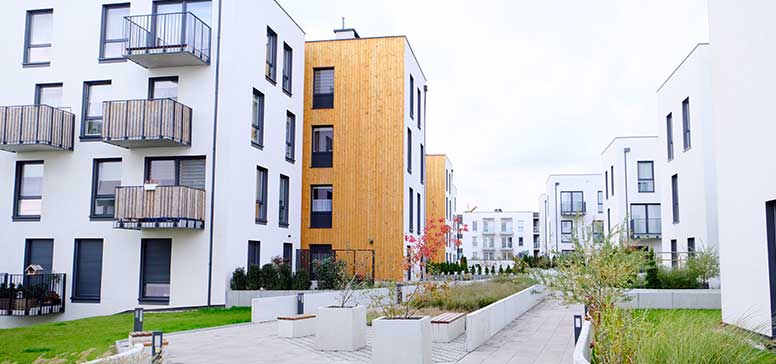Top Myths Concerning HOA Condo Life Debunked
Top Myths Concerning HOA Condo Life Debunked
Blog Article
The Function of an HOA in Establishing and Enforcing Area Standards for Homeowners
The function of a Homeowners Organization (HOA) in establishing and implementing community guidelines is basic to maintaining a orderly and cohesive residential atmosphere. By creating clear regulations that control elements such as property upkeep and community conduct, the HOA not just sets requirements for residents but additionally fosters a sense of belonging and liability.
Comprehending Property Owners Associations
Homeowners associations (HOAs) serve as controling bodies for residential neighborhoods, playing a vital function in maintaining residential or commercial property worths and fostering a sense of neighborhood. Commonly created by developers, HOAs are made up of homeowners within an assigned area who elect a board to manage the organization's activities. The key functions of an HOA consist of implementing neighborhood guidelines, taking care of usual locations, and organizing neighborhood occasions.
HOAs operate under a set of regulating papers, including limitations, commitments, and problems (CC&R s), which describe the rights and obligations of property owners. These laws aim to make certain that residential or commercial properties are maintained to a particular requirement, thus shielding the visual appeal and total value of the area. Additionally, HOAs commonly accumulate dues from homeowners to fund upkeep, landscape design, and other social work.
The presence of an HOA can considerably influence the living experience within an area (hoa condo). While some citizens value the organized environment and services offered, others may locate certain policies restrictive. Stabilizing the rate of interests of all property owners is vital for an HOA to function efficiently, making sure that it offers its intended objective of enhancing area living while respecting individual homeowner rights
Developing Area Guidelines

To start, an HOA should carry out studies or convene that allow residents to voice their problems and recommendations. This participatory procedure cultivates a sense of ownership and boosts conformity. Next off, the HOA board have to analyze the responses to determine typical motifs and priorities that call for official incorporation in the guidelines.
It is likewise necessary to ensure that the guidelines are clear, concise, and conveniently comprehended. Obscurities can result in misunderstandings and problems, weakening the purpose of the guidelines. The guidelines should be detailed, covering different elements of neighborhood living, including residential property upkeep, sound levels, and usage of typical areas.
Enforcement of Policies
Effective enforcement of neighborhood policies is critical for preserving order and ensuring that all locals follow the established standards. An HOA should execute an organized method to apply these policies, which usually includes a combination of surveillance, interaction, and charges for non-compliance.
First, regular examinations and area patrols can help identify violations, making sure that regulations are constantly used throughout the area. This proactive monitoring enables the HOA to deal with problems prior to they intensify, fostering a sense of accountability among citizens.
2nd, clear interaction is crucial. Homeowners ought to be notified of the regulations and the treatments for reporting violations. An open line of interaction encourages homeowners to voice worries and look for explanation on standards, which can improve compliance.
Lastly, when offenses happen, the HOA has to apply repercussions as described in the controling records. By successfully implementing guidelines, an HOA can grow an unified living environment that reflects the collective worths of its homeowners.
Advantages of HOA Laws
Various benefits arise from the application of HOA guidelines, which offer to enhance the lifestyle within a neighborhood. One main advantage is the maintenance of residential property worths. By imposing criteria for appearances and maintenance, HOAs guarantee that homes and common locations remain appealing, fostering a preferable living setting that can result in boosted residential or commercial property worths with time.
In addition, HOA policies advertise consistency and my explanation harmony within the neighborhood. This comprehensibility in style and upkeep assists to create a sense of belonging among residents, contributing to community pride and a favorable environment. Developed guidelines assist in conflict resolution amongst next-door neighbors by supplying clear assumptions and procedures for habits, consequently lessening disagreements.
Another significant benefit is the arrangement of common services and services. Numerous HOAs manage neighborhood centers such as swimming pools, parks, and clubhouses, which boost entertainment opportunities for residents. These features not only improve the lifestyle however likewise urge social communication.
Eventually, the laws stated by an HOA cultivate an efficient, harmonious community, guaranteeing discover this that residents take pleasure in a high requirement of living while fostering an encouraging atmosphere for all property owners.
Typical Obstacles Encountered by HOAs
Amidst the benefits that home owners associations (HOAs) can give, they also encounter a variety of difficulties that can impede their performance. One substantial concern is the absence of resident interaction. Numerous property owners may not join conferences or area activities, resulting in a detach between the HOA board and locals. This disengagement can cause misconceptions concerning area standards and a lack of assistance for enforcement initiatives.
Conflicts can develop when residents feel that enforcement is irregular or prejudiced, possibly leading to problems within the area. In addition, HOAs often encounter economic constraints, which can restrict their capability to keep common areas or fund community jobs.
Moreover, browsing lawful complexities can be daunting for HOAs. They must make certain compliance with state regulations while managing their very own controling papers, which can be a source of confusion. Developing and changing demographics neighborhood needs call for HOAs to adjust their standards, usually fulfilling resistance from enduring you can try these out residents who are accustomed to typical standards. Attending to these challenges is vital for promoting a successful and harmonious neighborhood.
Conclusion

By developing clear guidelines that govern elements such as building upkeep and neighborhood conduct, the HOA not only sets requirements for residents yet also promotes a sense of belonging and liability.Homeowners organizations (HOAs) offer as regulating bodies for property areas, playing an essential function in keeping home values and promoting a feeling of area. Numerous homeowners might not participate in conferences or community activities, leading to a disconnect between the HOA board and homeowners. Changing demographics and developing neighborhood needs call for HOAs to adapt their standards, often meeting resistance from long-lasting residents that are accustomed to conventional norms. Via the development of clear policies and constant enforcement, HOAs promote property upkeep, community satisfaction, and trust fund amongst homeowners.
Report this page